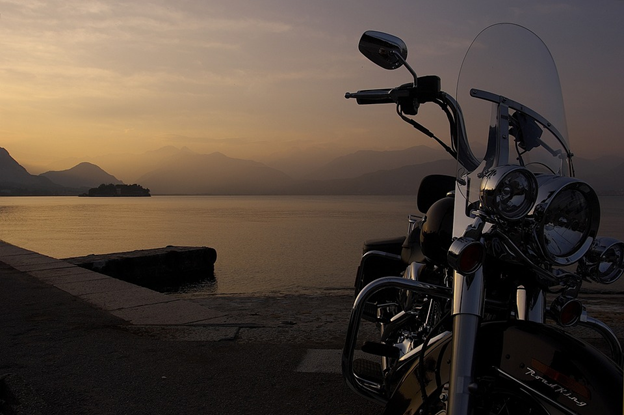Now Reading: From Bars to Bikes: The Rise of Unusual DWI Arrests in the Age of Alternative Transportation
-
01
From Bars to Bikes: The Rise of Unusual DWI Arrests in the Age of Alternative Transportation

From Bars to Bikes: The Rise of Unusual DWI Arrests in the Age of Alternative Transportation
With the rise of ride-sharing apps, e-scooters, and a growing cycling culture, it would seem logical that drunk driving arrests would be declining. After all, people today have more ways than ever to get home safely after a night out. Yet, an unexpected pattern has taken shape: an increase in DWI (Driving While Intoxicated) arrests involving unconventional modes of transportation. Even for those seeking legal representation for DWI arrests in Austin, this trend sparks meaningful conversations about public safety and how we define what it truly means to “drive” under the influence.
Redefining the Meaning of ‘Vehicle’
At the heart of this issue is a simple but important legal question: what truly qualifies as a vehicle? Most people think of DWIs as involving cars or trucks, but many state laws take a much broader view. In several jurisdictions, a “vehicle” can mean almost anything that moves along a roadway — from bicycles and scooters to golf carts and even horse-drawn carriages.
For example, in states like Texas and Florida, riding a bicycle while intoxicated can result in the same penalties as driving a car drunk. In Minnesota, courts have ruled that even riding a Segway could lead to a DWI. The reasoning behind this is simple: the impaired operation of any vehicle poses a risk to public safety, whether it endangers others on the road or creates unpredictable hazards for pedestrians.
However, not all states treat these cases the same way. Some states have begun reexamining their DWI laws to draw more precise lines between motorized and non-motorized transportation. The goal is to focus on preventing real danger rather than penalizing behavior that poses little risk. Even so, plenty of gray areas remain, and many people are caught off guard when a choice they thought was safe ends up leading to serious legal trouble.
Electric Scooters and E-Bikes: The New Legal Frontier
Electric scooters and e-bikes have transformed city travel, offering fast, eco-friendly options for short commutes. But that convenience has also created some confusion. With companies like Bird and Lime placing scooters on nearly every corner, many riders don’t realize that using one while under the influence can still lead to a DWI charge.
Police in cities like Los Angeles, Nashville, and Austin have reported more alcohol-related arrests involving scooters in recent years. The issue goes beyond breaking the law — it’s about safety. Scooters can be hard to control, especially on uneven streets, and even a minor fall can cause serious injuries. When alcohol is involved, the risk of losing balance or crashing increases sharply, endangering both the rider and those nearby.
This trend has sparked debate within the legal community. Should people riding e-scooters or e-bikes face the same consequences as drivers? The penalties should be less severe since these vehicles pose a minor threat to others. Others argue that impairment on any form of transportation sends the wrong message; that it’s acceptable to take risks just because the vehicle is smaller or slower.
The Curious Cases of Lawn Mowers and Horses
Beyond scooters and bikes lie some truly unusual DWI stories that stretch the imagination. In rural communities, arrests involving riding lawnmowers, tractors, and even horses have become oddly familiar.
In one widely reported case, a man in Kentucky was arrested for riding his horse home from a bar while intoxicated. While he may have thought he was making the responsible choice by not getting behind the wheel, the law didn’t agree. In many states, operating any vehicle, motorized or animal-powered, while under the influence can lead to arrest.
Similarly, riding a lawnmower on public roads while drunk, a surprisingly frequent occurrence, has resulted in numerous DWI charges. These cases highlight a tension between practicality and legality. While the intention may be safety or convenience, the law’s blanket definitions leave little room for nuance.
Public Perception and the Question of Fairness
The rise of these unusual DWI cases has sparked debate about fairness and proportionality in the justice system. Should someone riding a bike a few blocks home after drinking face the same penalties as a person driving a car at 70 mph? Critics argue that such cases dilute the seriousness of DWI laws and burden courts with minor offenses.
On the other hand, supporters of strict enforcement maintain that impairment is impairment and any form of intoxicated operation puts lives at risk. Even a cyclist can swerve into traffic, causing accidents or injuries. From a public safety standpoint, there’s value in maintaining a consistent standard of accountability.
Public perception often lies somewhere in the middle. While most people understand the need for safety, there’s also recognition that laws haven’t fully caught up with modern transportation habits. As cities embrace more bike lanes and micro-mobility options, legislators will need to rethink how to balance safety, practicality, and fairness.
Final Thoughts
Transportation is changing faster than the laws meant to regulate it. From e-scooters and bicycles to even horses, DWI rules are being challenged in ways few could have predicted. These situations make one thing clear: responsibility doesn’t end with cars; it applies to any way you choose to travel. For anyone seeking legal representation for DWI arrests in Austin, it’s a good reminder that trading four wheels for two, or even four hooves, won’t necessarily protect you from the consequences of driving under the influence.










